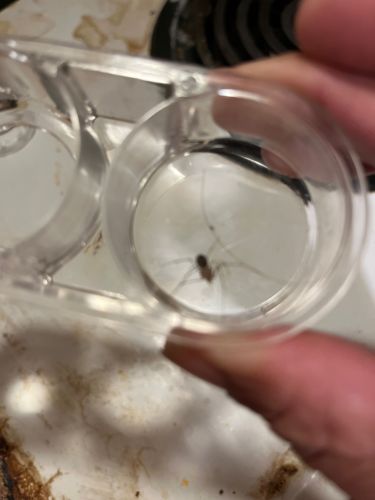Cellar Spider / Daddy Long-legs Spider
Scientific Name: Pholcus phalangioides (most common species)
Order & Family: Order: Araneae, Family: Pholcidae
Size: Body length typically 2-10 mm; legs can be quite long, reaching up to 50 mm, giving them their 'daddy long-legs' appearance.

Natural Habitat
Commonly found in dark, damp, and undisturbed areas of homes such as cellars, basements, crawl spaces, garages, sheds, and attics. They can also be found outdoors in sheltered locations.
Diet & Feeding
Mainly feeds on other insects and spiders. They are generalist predators and are known to prey on common house pests like flies, mosquitoes, and even other spiders, including venomous ones like the Redback Spider.
Behavior Patterns
Cellar spiders are known for building irregular, messy webs in corners. They are quite passive but will often vibrate rapidly in their web when disturbed, a defense mechanism to make themselves harder to see. They are also known to invade and eat other spiders in their webs.
Risks & Benefits
Cellar spiders pose little to no risk to humans as their venom is not considered medically significant and they are not aggressive. There is a common urban legend that they are highly venomous but cannot bite humans due to short fangs, which is false; they can bite, but their venom is harmless to humans. Their primary benefit is as a natural pest control agent, preying on other insects and spiders around the home.
Identified on: 8/13/2025